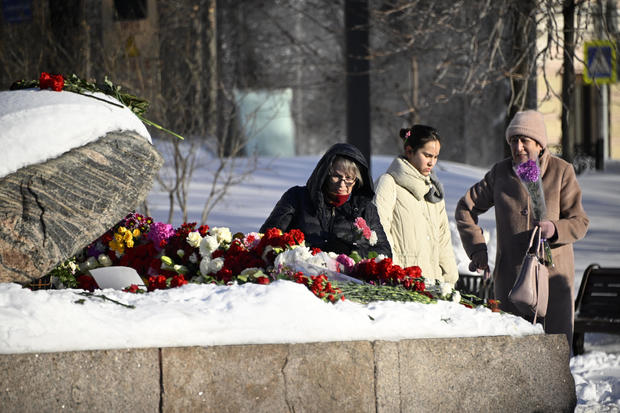Amidst the grief surrounding the death of Russian opposition leader Alexey Navalny, his family and supporters have been met with further distress as access to his body is reportedly denied, and investigations into his demise are prolonged. Navalny’s mother and his team have been refused access to his remains, with investigators extending the official probe, leaving uncertainty lingering over the timeline for resolution.
In a poignant video statement, Yulia Navalnaya, Navalny’s widow and a vocal critic of the Kremlin, condemned the authorities for withholding his body, accusing them of cowardice and deceit. The announcement of Navalny’s death by Russian prison authorities attributed it to “sudden death syndrome,” a claim met with skepticism by Navalny’s supporters, who suspect foul play reminiscent of previous politically motivated attacks.
Navalnaya’s resolve remains unyielding as she pledges to continue her late husband’s mission of exposing alleged corruption within Putin’s regime and challenging his grip on power. However, her efforts are met with resistance as Russian officials crackdown on tributes and demonstrations honoring the late dissident, underscoring the pervasive atmosphere of repression within Putin’s Russia.
Despite attempts to stifle dissent, expressions of mourning and solidarity continue, symbolized by the laying of flowers at Moscow’s Solovetsky Stone, a monument commemorating victims of political repression. However, these tributes are swiftly eradicated by authorities, mirroring the broader suppression of dissenting voices across the nation.
The circumstances surrounding Navalny’s death remain shrouded in ambiguity. He was last seen alive during a court appearance via video link, appearing in relatively good health. Prison officials claim he fell ill during a walk and subsequently passed away, attributing his demise to “sudden death syndrome.” Navalny’s allies, including President Biden and numerous world leaders, hold Putin accountable for the tragedy, emphasizing the need for accountability and justice.
As international pressure mounts, with several European nations summoning Russian diplomats and issuing statements condemning Navalny’s death, the prospect of accountability in Putin’s Russia appears distant. With elections looming and Putin poised for another term, the quest for justice for Navalny remains a formidable challenge amidst the prevailing climate of repression and impunity.

